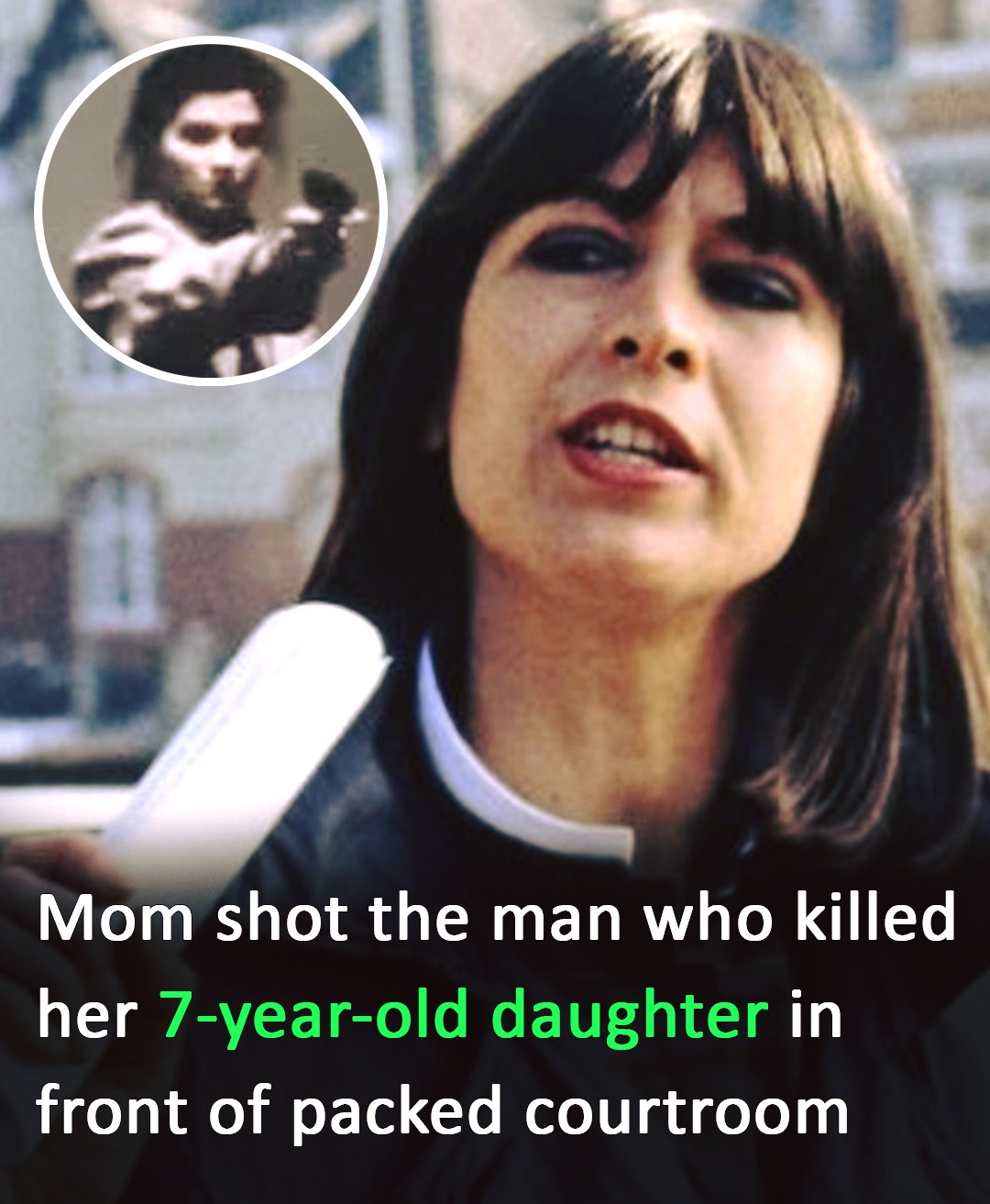On a quiet morning in Lübeck, Germany, on March 6, 1981, a woman named Marianne Bachmeier entered a courtroom with a calm yet resolute expression. What unfolded next would stun the nation and leave a lasting impression around the world. Concealed in her handbag was a loaded pistol. With unwavering intent, Marianne aimed it at Klaus Grabowski—the man accused of abducting, abusing, and killing her seven-year-old daughter, Anna. She fired seven times, ending his life in front of the court.
Authorities arrested her immediately, but Marianne felt no regret. She had done what many grieving parents might only imagine in their darkest moments: taken justice into her own hands. Her impulsive act sparked fierce global debate over morality and justice.
More than 40 years later, Marianne Bachmeier’s name still provokes discussion—her story sitting at the crossroads of vengeance, loss, and the blurry line between right and wrong.
Marianne’s early life was marked by hardship and trauma. Her father had been a member of the Waffen-SS during Nazi rule, casting a long shadow over her childhood. She suffered abuse and emotional scars that shaped her path. At sixteen, she gave up her first child for adoption, and again at eighteen. But when Anna was born in 1973, Marianne chose to raise her as a single mother.
Anna was a joyful, curious child, full of life. She and Marianne lived together in Lübeck, where Marianne managed a small pub to support them. Their bond was strong, and despite life’s difficulties, they shared warmth and love. But on May 5, 1980, their lives were shattered. After a minor argument, Anna skipped school to visit a friend—but never arrived. Along the way, she was lured by 35-year-old Klaus Grabowski, a convicted sex offender with a disturbing past.
Grabowski had served time for abusing children and voluntarily underwent chemical castration. Later, he reversed the process with hormone therapy. At the time of Anna’s murder, he was living with his fiancée, largely unnoticed in the community despite his criminal record. He held Anna captive, assaulted her, and eventually strangled her to death.
He placed her body in a cardboard box and left it by a canal, returning later to move and bury her. His fiancée, horrified by what he had done, reported him to the police. That same evening, he was arrested at a local bar.
Though Grabowski was in custody, Marianne’s grief was unrelenting. During his trial, he made deeply offensive claims, including suggesting Anna had seduced him—an assertion that intensified Marianne’s suffering. She had not only lost her daughter but now had to endure her being defamed in public court.
On the third day of the trial, Marianne walked into the courtroom. Hidden in her bag was a pistol. As the proceedings began, she pulled it out and fired seven times. Grabowski died instantly. “He killed my daughter… I wanted to shoot him in the face, but I shot him in the back. I hope he’s dead,” she said. Witnesses recalled her calling him a “pig” right after the shots.
Police arrested her on the spot. Initially charged with murder, Marianne stood trial a year later. She said she acted in a trance, driven by visions of Anna. However, investigators found clues suggesting careful planning. Her control of the weapon and the precision of the shooting pointed toward premeditation. A psychological assessment revealed she had written, “I did it for you, Anna,” alongside seven hearts—one for each year of Anna’s life.
The trial captivated the media. Some viewed Marianne as a heartbroken mother pushed too far, while others emphasized the importance of law and due process. As coverage intensified, journalists began digging into her past—focusing on her time as a bar owner, her troubled youth, and her previous decisions to give up children. Public opinion split.
Ultimately, she was convicted of premeditated manslaughter and illegal possession of a firearm. She received a six-year sentence but was released after serving three. A nationwide survey showed how divided people were: one-third believed her sentence was fair, one-third thought it was too harsh, and the rest considered it too lenient.
Following her release, Marianne tried to escape the spotlight. She moved to Nigeria, married a German teacher, and later settled in Sicily. Eventually, she returned to Lübeck in the 1990s after being diagnosed with pancreatic cancer. Despite her attempts to move on, her name remained tied to the tragic events of that courtroom.
In later interviews, Marianne expressed deep pain and unwavering conviction in her actions. She described the horror of Anna’s death and explained that Grabowski’s behavior had erased his right to live. In one televised appearance, she admitted the shooting was not impulsive—it was a decision to silence him and stop the lies about her daughter.
Marianne Bachmeier died on September 17, 1996. She was buried beside Anna in Lübeck. Their graves, side by side, remain a powerful symbol of love, loss, and the price of vengeance.
Her story continues to stir emotions and provoke questions. Was she a mother overcome by grief, or a symbol of how flawed justice systems can fail the innocent? To this day, opinions remain divided.
What’s certain is the magnitude of her sorrow and the desperation that drove her. Whether viewed as justified or not, Marianne’s story remains one of the most haunting illustrations of how grief, justice, and humanity collide.
